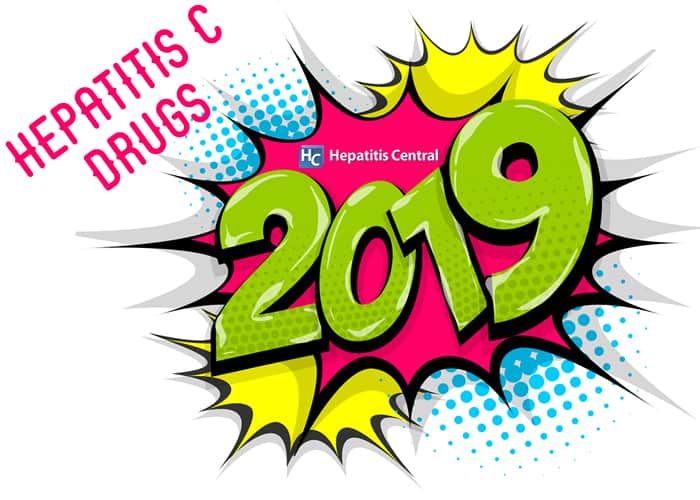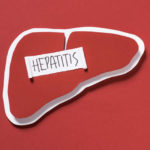Hepatitis C Drugs News – 2019


Updated November 8, 2019
Whereas 2018 saw a spike in cure rates and effectiveness, 2019 will hopefully see a drop in high costs coupled with more accessibility and fewer denials from insurers.
Cure rates upwards of 95% in brands like Epclusa, Zepatier, Daklinza, and many others across all patient genotypes have caused research, development, and competition to stagnate with multiple inferior products voluntarily withdrawing from the marketplace (1).
The newer treatments are generally:
- more effective
- less invasive
- and faster acting.
Now, the final hurdles in the fight against hepatitis are:
- accessibility
- and cost.
Many popular Hepatitis C drugs have been discontinued in recent years as cure rates steadily climbed from 2014 to 2019. Manufacturer Janssen pulled out of the Hepatitis C market by discontinuing Olysio in May 2018, and rival AbbVie discontinued Technivie and Viekira XR starting January 1, 2019 (2).
As the marketplace levels out we should begin to see more cost-effective treatments.
However, high success rate treatments often have $1,000 per pill price tags with common treatments like Sovaldi adding up to $95,000 for a single round of treatment (1).
Meanwhile, researchers from the Perelman School of Medicine at the University of Pennsylvania illuminated the ugly fact that more than half of privately insured Hepatitis C patients were denied treatment between 2016 and 2017, and denials from public insurers were also high at 34% over the same period (2). The reason for the high denial rate and restriction of access is undoubtedly cost, with researchers also finding that health insurance providers were granting approvals only for “patients with evidence of advanced liver fibrosis and/or abstinence from alcohol or illicit drug use (2).”
The backlash against high cost and inaccessibility pushed prices down throughout 2018 and, ideally, that trend continues into 2019.
Last year saw AbbVie launch Mavyret for $26,400 for one round of treatment.
2019 witnessed the escalation of a price war that Mavyret’s release sparked. In July 2018, Merck announced the price of Zepatier would drop by 60%, from almost $55,000 per round (3). Also generic versions of Gilead’s Hepatitis C medications Epclusa and Harvoni for $24,000 per round are available, which some are taking as an indication of more patient-friendly price fluctuations.
7 Top FDA-Approved Hepatitis C Treatments for 2019
- MAVYRET – Having gained FDA approval in August 2017, Mavyret is a combination drug comprised of two viral protein inhibitors (glecaprevir/pibrentasvir) and is easily the most affordable treatment currently available. Mavyret is successful at clearing all six Hepatitis C genotypes in 8-12 weeks and is delivered in 3 pills taken once daily. Mavyret perked ears with a price tag of roughly $26,000 per round, falling far below the $40k threshold that many scholars believe to be sustainable by U.S. healthcare systems without requiring treatment delays or withholding other services (5), (6).
- VOSEVI – Gained FDA approved in July 2017 and, like Mavyret, can also be used to treat any genotype of the Hepatitis C virus. Vosevi was designed for those previously treated with sofosbuvir who didn’t achieve viral clearance (4). Vosevi also sports a single tablet once-daily dosage with a 12-week regimen that costs a whopping $890 per pill, or upwards of $74,000 per single round of treatment.
- EPCLUSA – Gilead’s version of sofosbuvir was approved on June 28, 2016, and is a two-in-one combination tablet able to treat all six major Hepatitis C genotypes. Epclusa is prescribed in a once-daily dose for a short period of 1-6 weeks. However, the cost left much to be desired at $74,760 for a 12-week long regimen (5). Generic versions run about $24,000 for a common course of treatment.
- ZEPATIER – From manufacturer Merck comes Zepatier, a combo (grazoprevir/elbasvir) that clocks in at $54,600 as single pill therapy taken once daily for 6-12 weeks (5). Zepatier can treat Hepatitis C genotypes 1 and 4 (4).
- DAKLINZA – Approved in July 2015, Daklinza was the first direct-acting antiviral to treat Hepatitis C genotype 3 infections without the help of peginterferon or ribavirin (4). However, it must be taken in conjunction with Sovaldi which causes the cost to skyrocket. Twelve weeks of Daklinza runs you $63,000 and Sovaldi costs $84,000 for a similar 12-week course for a staggering total of $147,000, or roughly $1,750 per day for the combo (6).
- HARVONI – Harvoni gained FDA approval in October of 2014 and was the first all-in-one treatment plan for genotype 1 and 4 infections with or without cirrhosis. Unfortunately, the price hovered around $94,000 for a 12-24 week round of treatment (1). Now a generic version is available for around $24,000 for a common course of treatment.
- SOVALDI – Approved in December of 2013, Sovaldi is a direct-acting antiviral for genotypes 1, 2, 3 and 4 (4). For genotype 3, Sovaldi is co-administered with Daklinza and has a 12-24 week treatment period (5). This regiment of Sovaldi will run you $84,000 before even factoring in the additional cost of Daklinza.
In the meantime, educating patients so they understand how they’re being evaluated by insurers is another hurdle. Not drinking or smoking are two large factors insurers look at in deciding whether or not to approve, and cutting them out of your diet is never a bad idea as both are leading indicators of a number of other chronic conditions, liver disease aside.
2019 should be a turning point in the fight against hepatitis and chronic liver disease as the quality of treatments and accessibility continues in an upward trend.
Editor’s Note
While the scale appears to be tipping in the patient’s favor in the fight for hepatitis treatments, cost and accessibility are still deciding factors for many. In lieu of medication, taking supplements to strengthen and protect your liver is a necessary second measure. If you’re looking to support your liver naturally, we recommend choosing a company that has been around for decades, complies with all FDA guidelines and good manufacturing processes, like Natural Wellness.
1. https://www.hepmag.com/blog/generic-hepatitis-c-treatments-coming-united-states, Hepmag.org, “Generic Hepatitis C Treatments Coming in the United States,” By Connie M. Welch, Published October 10, 2018, Retrieved January 8, 2019
2. https://www.pennmedicine.org/news/news-releases/2018/june/half-of-hepatitis-c-patients-with-private-insurance-denied-life-saving-drugs, Penn Medicine News, “Half of Hepatitis C Patients with Private Insurance Denied Life-Saving Drugs,’ Published June 7, 2018, Retrieved January 8, 2019
3. https://www.managedcaremag.com/archives/2018/11/antiviral-drugs-have-made-hepatitis-c-eminently-treatable, ManagedCareMag.com, “Antiviral drugs have made hepatitis C eminently treatable,” By Sussan Ladika, Published November 4, 2018, Retrieved January 8, 2019
4. https://www.verywellhealth.com/list-of-approved-hepatitis-c-drugs-3576465, Very Well Health, “ FDA-Approved Hepatitis C Drugs,” By James Myhre and Dennis Sifris, MD, Updated January 2, 2019, Retrieved January 8, 2019
5. https://betablog.org/surprising-price-break-newly-approved-hepatitis-c-drug/, BetaBlog.org, “Surprising price break for newly-approved hepatitis C drug,” By Liz Highleyman, Published August 16, 2017, Retrieved January 8, 2019
6. https://www.contagionlive.com/news/2019-brings-end-to-hepatitis-c-virus-treatment-rationing-oregon, Contagion Live, “2019 Brings End to Hepatitis C Virus Treatment Rationing in Oregon,” By Allison Inserrojan, Published January 3, 2019, Retrieved January 8, 2019







